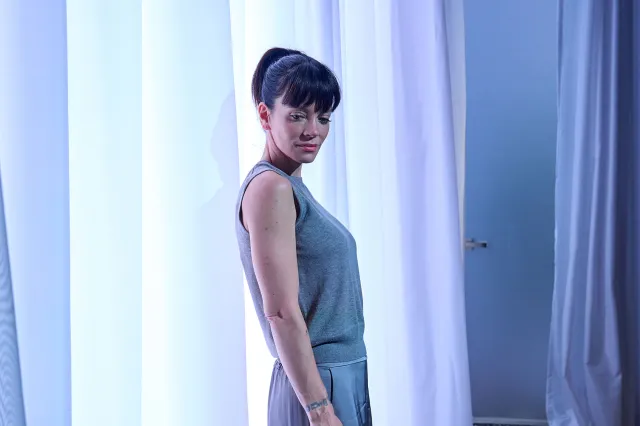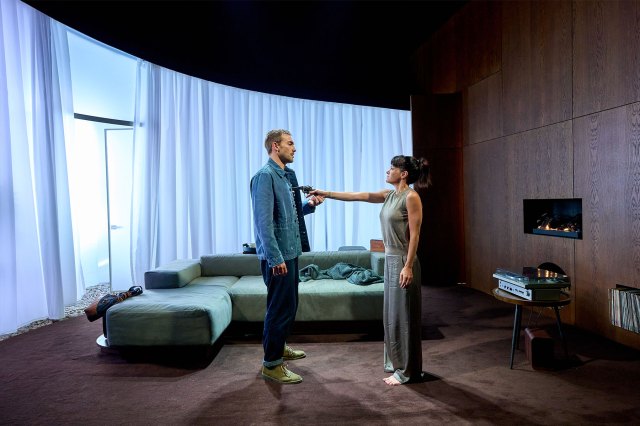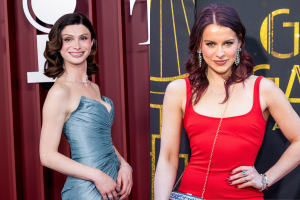Hedda with Lily Allen at Theatre Royal Bath’s Ustinov Studio – review
Matthew Dunster’s adaptation of the Ibsen classic runs until 23 August

Lily Allen as Hedda Gabler is not a name you’d have found on many bingo cards a few years back. Yet, in the wake of the pandemic, she has shifted her career into the theatre spotlight, with high-profile turns in 2:22 A Ghost Story and The Pillowman. Now she steps into the lineage of illustrious actors who have wrestled with Ibsen’s elusive heroine. And like a diligent student on results day, she walks away with a respectable B.
It’s not hard to see why Matthew Dunster keeps inviting her back. With her elfin features framed by a wardrobe of chic loungewear jumpsuits, she has the easy glamour of someone who has been a pop princess since her teens. There’s star power here, but also a studiousness – you can almost feel the hours of preparation in every scene. When the emotion swells, she lands: a woman teetering at the brink, tears tracing her cheek, her life narrowing. In the quiet beats, though, the craft shows – hands fluttering like a keen student unsure what to do with them. The great actors carry stillness like a secret; Allen sometimes presses when the moment calls for a breath. Her voice misses an octave.
Dunster’s adaptation, shifted into 2025, has its own snags. A lost manuscript in the age of the cloud requires more suspension of disbelief than it earns, and academic rivalry speeches (perhaps purposefully indulgent) drain urgency from what should feel like a knife-edge moment for Tessman’s future. His update is faithful yet faintly improbable: five-month honeymoons and live-in housekeepers on one academic salary belong to a fairy tale, even for a Hedda who grew up in the luxury of her father’s record label world. In this telling, Ibsen’s vision of female freedom crushed by the weight of patriarchy fades; here, it is Hedda’s own selfishness that seals her fate.

The evening’s crown rests on Brendan Coyle’s Brack, no longer a judge but an MP, his charm oily and precise, his claws sinking into Hedda with ever-insidious inevitability. Ciarán Owens gives George a shambling, geeky warmth – Rick and Morty T-shirts and nervous smiles – until his temper spills through the cracks. Tom Austen, as the rival caught in a loop of shame, and Julia Chan, his partner in work and life, also leave their mark.
Anna Fleischle’s set is all 21st-century Soho House polish – a log burner flickering beside a record player – yet it hums with claustrophobia. A two-way chaise longue pins the characters in place, while a distracting automatic door slides open and shut, a restless world beckoning and receding in turn.
This Hedda may not offer revelations, but it has a steady pulse. It shows Allen as an artist of genuine promise, one who may, in time, wear the crown as easily as she wears the spotlight.















